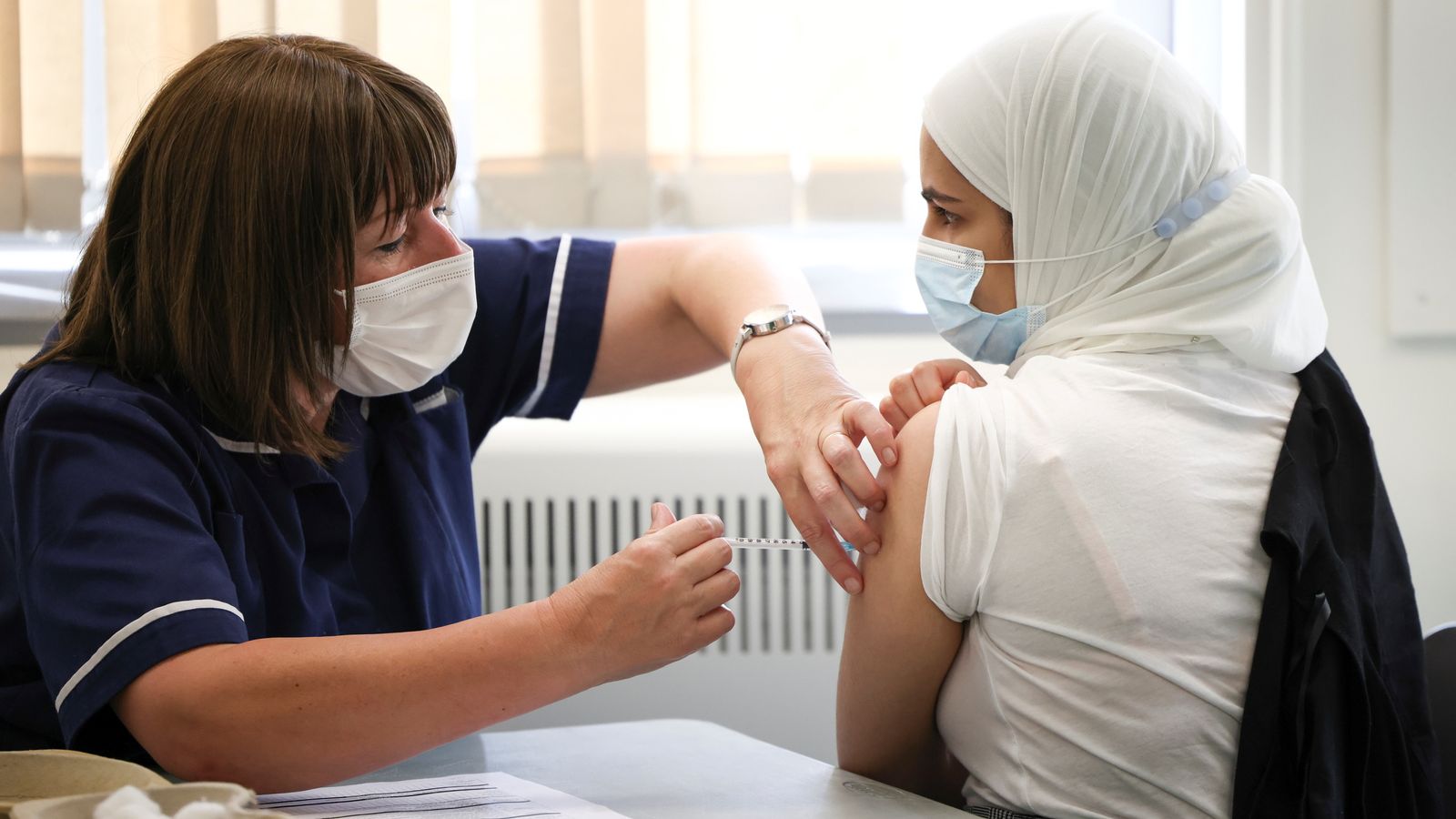The Delta (Indian) variant is about 60% more transmissible than the Alpha (Kent) variant and vaccines are less effective against it, Public Health England has said.
More than 90% of new COVID-19 cases in the UK are now the Delta variant.
The variant, first identified in India, has taken over from the Alpha variant as the most dominant in the UK.
Since last week, the number of Delta variant cases across the UK has increased by 70% to 42,323.
New PHE research suggests the Delta variant is associated with an approximately 60% increased risk of household transmission compared with the Alpha variant.
And Delta cases are doubling across all regions of the country in between 4.5 days to 11.5 days.
In England, 39,061 Delta variant cases have now been confirmed, with 2,035 in Scotland, 184 in Wales and 43 in Northern Ireland.
PHE said the large increase from 12,341 last week to 42,323 this week has been partly driven by faster test turnaround times and a quicker process for identifying cases of the variant.
The latest COVID-19 risk assessment by PHE reports vaccines are less effective against the Delta variant than the Alpha one by 17% after one dose.
But there was little reduction in efficacy after two, meaning getting a second dose is integral to protection against the Delta variant.
As of 7 June, there have been 42 deaths in England of people confirmed as having the Delta variant and who died within 28 days of testing positive.
Of these people, 23 were unvaccinated, seven had had their first dose more than 21 days before and 12 had their second dose more than 14 days before.






















